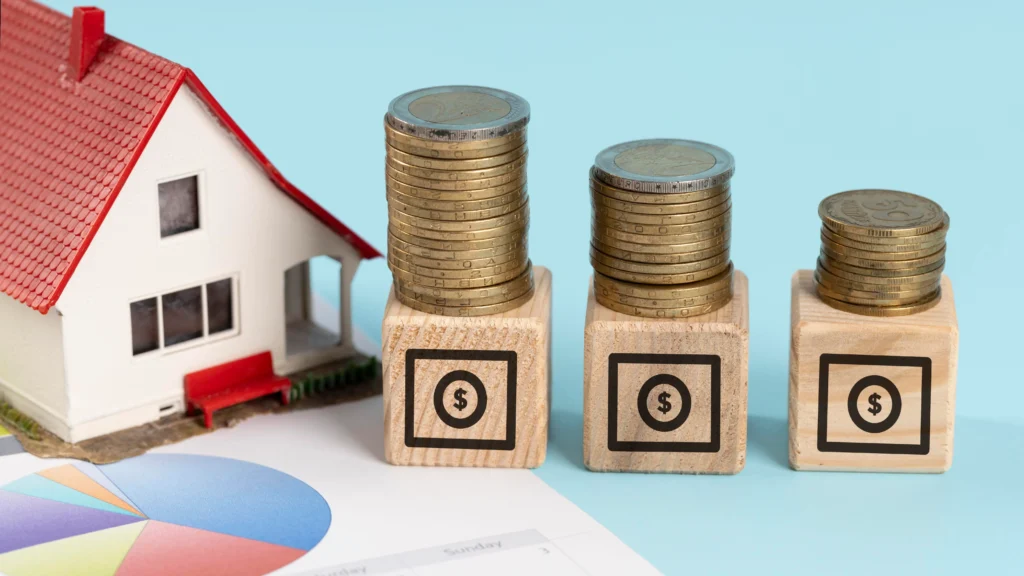How to Use Our Calculators
Our calculators are designed to be simple and helpful. Just enter your details, and you’ll get quick and accurate results.
Mortgage Calculators If you’re looking to buy a home or manage a mortgage, these tools will be useful. The mortgage calculator helps you figure out your monthly payment based on loan amount, interest rate, and time.
The affordability calculator shows how much home you can afford based on your income and expenses.
The payoff calculator helps you see how making extra payments can reduce your loan faster.
Loan and Debt Calculators Planning to take a loan or pay off existing debt? These calculators can guide you.
The personal loan calculator estimates your monthly payments based on the loan amount and interest rate.
The debt payoff calculator helps you create a strategy to clear your debts faster.
Savings and Investment Calculators Thinking about saving or investing? These tools can help you plan better.
The compound interest calculator shows how your money can grow over time.
The retirement calculator helps you estimate how much you need to save for a secure future.
Home and Property Calculators Making a real estate decision? These calculators make things easier.
The home affordability calculator estimates how much home you can afford based on your finances.
The rent vs buy calculator helps you decide whether renting or buying is the better option.
Tax and Income Calculators Not sure how much tax you’ll need to pay? These calculators can help.
The income tax calculator estimates your tax based on salary and deductions.
The self-employed tax calculator helps freelancers and business owners calculate their yearly tax.
Using these calculators is easy—just enter your details and get instant results. If you need any help, feel free to reach out!
Frequently Asked Questions
How is a recasting for a mortgage calculated
Mortgage recasting is calculated by taking your remaining loan balance and reducing it with a lump sum payment. The lender then recalculates your monthly payments based on the lower principal while keeping the same loan term and interest rate. This reduces your monthly payment but does not shorten your loan term.
Is mortgage recast a good idea?
A mortgage recast is a good idea if you want to lower your monthly payments without refinancing. It’s beneficial if you have a large sum of money (such as a bonus or inheritance) and want to reduce your monthly financial burden while keeping your low-interest rate. However, it won’t reduce the overall interest rate or shorten the loan term.
How can I lower my monthly mortgage payment?
You can reduce your mortgage payment in a few ways:
Make a large payment to lower your loan balance, which is known as recasting.
Refinance your loan to get a lower interest rate or extend the loan term.
Ask your lender for a loan modification if you’re struggling to pay.
Remove private mortgage insurance if you have built enough home equity.
Can I ask my bank to lower my interest rate?
es, you can ask your bank, but they won’t always agree. You may need to refinance to get a lower rate. If you’re having financial trouble, you can request a loan modification. Some banks may offer better rates if market rates drop or if you have a strong payment history.
Does mortgage recasting have a fee?
Yes, banks usually charge a small fee, often between $200 and $500. It’s much cheaper than refinancing, which has higher closing costs.
Does US Bank allow mortgage recasting?
Yes, US Bank does offer mortgage recasting for eligible loans. You’ll need to make a lump sum payment and pay a small fee. It’s best to check with US Bank for their exact rules.
What is an example of a mortgage recast?
Imagine you owe two hundred thousand dollars on your mortgage and have twenty years left to pay. If you make a twenty-thousand-dollar extra payment, your lender will change your monthly payment. This will be based on the new balance of one hundred eighty thousand dollars. This means lower payments, but your interest rate and loan term stay the same.
What does recast mean?
Recasting means paying extra toward your mortgage so your lender lowers your monthly payment. It does not change your loan term or interest rate, just the amount you pay each month.










